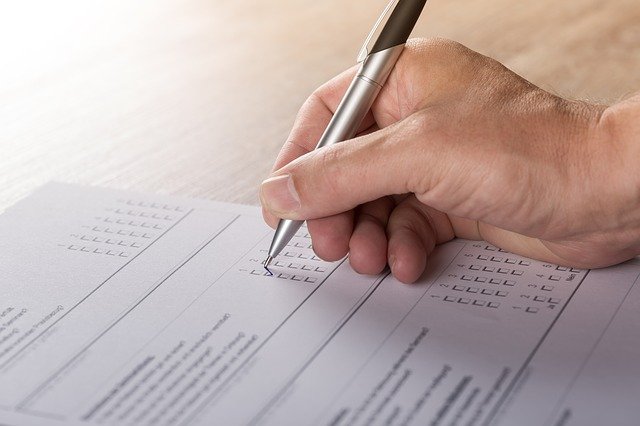SCOTUS to Hear Potential Blockbuster Voting Rights Case

Next month, the U.S. Supreme Court will hear two significant voting rights cases out of Arizona. The cases, Arizona Republican Party v. Democratic National CommitteeandBrnovich v. Democratic National Committee, involve an Arizona policy that requires voters who vote in person to do so in their assigned precincts and a state law that prohibits so-called “ballot harvesting,” in which mail-in ballots are collected and returned by someone other than a voter’s caregiver, family member, mail carrier, or an election official.
Facts of the Case
Section 2 of the Voting Rights Act prohibits voting practices that “result[] in a denial or abridgement of the right of any citizen … to vote on account of race or color.” Such a discriminatory “result” occurs if an election is not “equally open to participation” by racial minorities, giving them “less opportunity than other members of the electorate to participate in the political process and to elect representatives of their choice.”
The State of Arizona grants all citizens an equal opportunity to vote in person or by mail. However, it also has voting laws in place that govern those voting processes. Arizona has an “out-of- precinct policy,” which does not count provisional ballots cast in person on Election Day outside of the voter’s designated precinct. It also has a “ballot-collection law,” known as H.B. 2023, which permits only certain persons (i.e., family and household members, caregivers, mail carriers, and elections officials) to handle another person’s completed early ballot.
Both lawsuits before the Court involve the above provisions. In Brnovich v. Democratic National Committee, the district court upheld the provisions against claims under Section 2 of the Voting Rights Act and the Fifteenth Amendment. While a Ninth Circuit panel affirmed, the full Ninth Circuit, sitting en banc, reversed.
In Arizona Republican Party v. Democratic National Committee, the Ninth Circuit held that Arizona violated § 2 of the Voting Rights Act by (1) requiring in-person voters to cast ballots in their assigned precincts; and (2) prohibiting “ballot-harvesting.” The federal appeals court held that because racial minorities disproportionately vote out-of-precinct and use ballot-harvesting, the Voting Rights Act compels the State to allow those practices.
Issues Before the Supreme Court
The Supreme Court granted certiorari in both cases on October 2, 2020. In Arizona Republican Party v. Democratic National Committee, the justices have agreed to consider the following questions:
- Whether § 2 of the Voting Rights Act compels states to authorize any voting practice that would be used disproportionately by racial minorities, even if existing voting procedures are race-neutral and offer all voters an equal opportunity to vote; and
- Whether the Ninth Circuit correctly held that Arizona’s ballot-harvesting prohibition was tainted by discriminatory intent even though the legislators were admittedly driven by partisan interests and by supposedly “unfounded” concerns about voter fraud.
In Brnovich v. Democratic National Committee, the justices agreed to consider the following question:
- Whether Arizona’s out-of-precinct policy, which does not count provisional ballots cast in person on Election Day outside of the voter’s designated precinct, violates Section 2 of the Voting Rights Act; and
- Whether Arizona’s ballot-collection law, which permits only certain persons (i.e., family and household members, caregivers, mail carriers and elections officials) to handle another person’s completed early ballot, violates Section 2 of the Voting Rights Act or the 15th Amendment.
The cases have been consolidated and are scheduled for oral argument on Tuesday, March 2, 2021.
Previous Articles
SCOTUS Decision in Bowe v. United States Is First of the 2026 Term
by DONALD SCARINCI on February 5, 2026
In Bowe v. United States, 607 U.S. ___ (2026), the U.S. Supreme Court held that Title 28 U.S.C. § ...
SCOTUS Rules State Can’t Immunize Parties from Federal Civil Liability
by DONALD SCARINCI on January 29, 2026
In John Doe v. Dynamic Physical Therapy, LLC, 607 U.S. ____ (2025) the U.S. Supreme Court held that...
Supreme Court to Address Racial Discrimination in Jury Selection
by DONALD SCARINCI onWhile the U.S. Supreme Court has concluded oral arguments for the year, it continues to add cases t...
The Amendments
-
Amendment1
- Establishment ClauseFree Exercise Clause
- Freedom of Speech
- Freedoms of Press
- Freedom of Assembly, and Petitition
-
Amendment2
- The Right to Bear Arms
-
Amendment4
- Unreasonable Searches and Seizures
-
Amendment5
- Due Process
- Eminent Domain
- Rights of Criminal Defendants
Preamble to the Bill of Rights
Congress of the United States begun and held at the City of New-York, on Wednesday the fourth of March, one thousand seven hundred and eighty nine.
THE Conventions of a number of the States, having at the time of their adopting the Constitution, expressed a desire, in order to prevent misconstruction or abuse of its powers, that further declaratory and restrictive clauses should be added: And as extending the ground of public confidence in the Government, will best ensure the beneficent ends of its institution.





